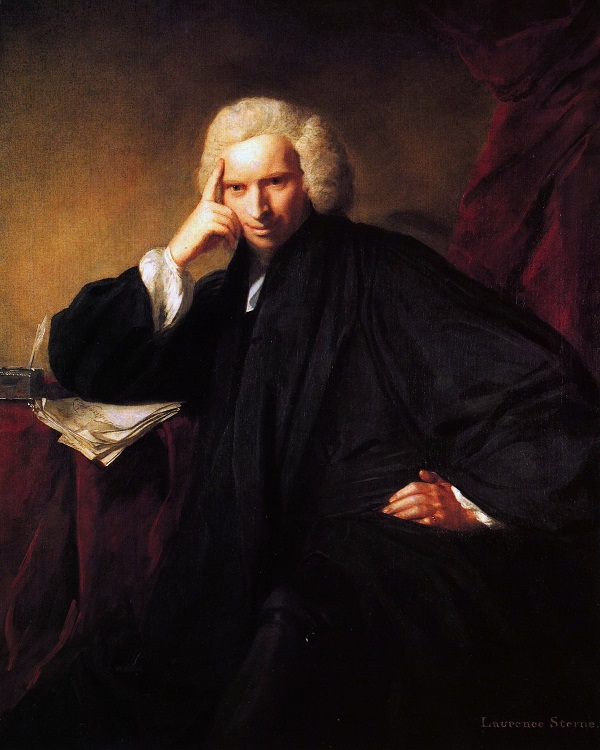The other day my critique partner pointed out that I hadn’t published a blog post in a while. In a few weeks, I’ll be attending a writers conference where I hope to meet similarly aspiring authors as well as literary agents. And if any of them takes the time to follow the link on my business card, I want them to experience a blog that’s as fresh as a just-baked baguette — but nowhere near as crusty. So, to get back in the swing of blogging, I had to pick a new topic to write about.
Thus began my foray into Phutatorius’s breeches.

Let me begin by saying that I took time away from blogging to draft a new novel. Researching a novel is, for me, the fun part. It’s also time-consuming, especially if you find yourself in the zone, experiencing flow, living in kairos, or however you describe the sensation of being so immersed in what you’re doing that time flies. The next step, outlining, requires me to exercise more gray matter. I took a class at Grubstreet on outlining (thank you, Blair Hurley, for the excellent instruction), and mapped my story to the unraveling of the psychopathic mind. Then came the hard part, which is also fun, but which can be a little agonizing too: writing manuscript pages. To ease my way back into blogging, I followed a similar path: research-outline-draft. If I was going to blog about being on hiatus, I needed to research the etymology of that word. Google led me to the Merriam-Webster website where, in blue and white, I found this intriguing factoid:
In the 18th century, Laurence Sterne used the word humorously in his novel Tristram Shandy, writing of “the hiatus in Phutatorius’s breeches.”
https://www.merriam-webster.com/dictionary/hiatus
What a gem! So many questions popped into my head at once. Who was Phutatorius? Why couldn’t I remember him after having read Tristram Shandy? Why did Laurence Sterne write about his breeches? Did the word hiatus accurately describe what lay inside them? Imagine the thrill I felt when a little googling later, I learned that the hiatus in Phutatorius’s breeches was the point of entry of a piping hot chestnut. The results of my research were getting weirder by the minute.

Now I don’t want to drag you down the rabbit hole of why Phutatorius was harboring the fruit of the deciduous beech tree inside his pants. Or how he got it out. Or why it was hot before it got there. What I do want to do is share my consternation upon discovering that, contrary to the quote on the Merriam-Webster website, quotations from Tristram Shandy on other websites use the word aperture, not hiatus, in relation to Phutatorius’s breeches.
Which brings us to the mystery du jour, which has nothing to do with the chestnut inside said breeches, and everything to do with how the word aperture came to replace hiatus.

I had to wonder: Did Laurence Sterne really invent the word hiatus? If so, why doesn’t it appear consistently alongside Phutatorius’s breeches? How did it morph into aperture, which (according to Merriam-Webster) was first used in the 15th century and almost always refers to a lens? By whose hand was one word swapped for the other? An agent? Editor? Publisher? Typesetter? Did someone deem hiatus too new a word to appear in a contemporary novel? Or did someone gaze into a crystal ball all the way to the 20th century and declare that one day, hiatus would be used almost exclusively to describe a break from activity or a type of hernia? And if that was the case, why not just use the word opening instead?
This hiatus here, aperture there discovery punctured my bubble of hope that I could somehow draw a pithy comparison between a literary classic and my own vacation from blogging. I’ve been on hiatus. Technically, you could say I was suspended in an aperture of time, but that just sounds flowery for no good reason. Though some excellent writers I know have allowed a little purple prose to blossom on the pages of early drafts.
Soon, after I finish the first draft of my new novel and before I plunge into adventures in revision, I’ll be back to blogging more regularly. Think of me as a little chestnut seeking respite from social media. Until then, thank you to my readers for your patience, to Blair Hurley for giving me a kick in the breeches to figure out my story, and to my critique partner for suggesting I bring my hiatus — or aperture — to a close.
Joycie – I loved it! Sue
Ahh, the vagaries of diction. Thanks for the entertaining hiatus—I mean break/opening/aperture—in my otherwise boring workday.
How could you have forgotten Vol IV, Ch. XXVII? Really, it’s one of the funniest chapters in the novel. Consulting my Penguin Classics edition just now, I find that both “aperture” and “hiatus” are used. I think “hiatus” is apt for the days before zippers, when a neglected button or two might be considered a “hiatus.”
What an excellent topic for debate! A little googling led me to thesaurus.plus, which states that “hiatus” is an open space in a barrier, while “aperture” is a place in a surface allowing passage into or through a thing. If we’re to accept that definition, then Phutatorius and his toasty chestnut entered and exited his breeches via an aperture. But, as you point out, Phutatorius pre-dates zippers. So, I suppose both “hiatus” and “aperture” would be correct. Thanks so much for your comment!